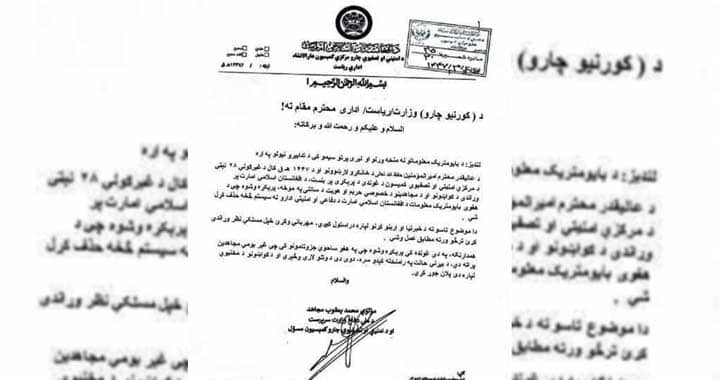The Afghan Taliban leadership has ordered its Tath’heri (Purification) Commission and the Ministry of Defence to erase all biometric records of fighters and officials, raising alarm that the move is aimed at shielding its cadres from future tracking and accountability.
The directive comes after US president Donald Trump announced plans to retake Bagram Airbase and redeploy American forces. Taliban leaders reportedly fear that if ongoing negotiations at Bagram collapse, or if the United States halts financial support under counterterrorism pretexts, Washington could launch unilateral strikes against them.
By purging biometric data, the Taliban aim to prevent their fighters and commanders from being tracked, making it easier for them to escape, resettle, or re-emerge under different identities. Intelligence sources suggest that militants are preparing multiple fallback options, with some expected to join groups such as Al-Qaeda and ISKP, while others may cross into Pakistan’s tribal belt and border regions.
Revelations have also surfaced that many senior Taliban leaders have already shifted their families and substantial wealth to India, securing potential sanctuaries in advance. Analysts argue this reflects a calculated survival strategy, ensuring that the leadership remains insulated while foot soldiers bear the brunt of any future conflict.
Observers note a striking resemblance to the early 2000s, when US forces entered Afghanistan and Taliban leaders abandoned their fighters, fleeing on mules while leaving Afghan civilians exposed. That exodus forced Pakistan to contend with Al-Qaeda militants spilling into its tribal areas, igniting a prolonged counterterrorism struggle that deeply destabilised the country.
Security experts warn that the erasure of biometric data could undermine international monitoring and accountability, complicating efforts to track Taliban fighters and enabling their reintegration into global jihadist networks. The precautionary measure, they caution, underscores fears within the Taliban that Afghanistan may once again become a hub for transnational militancy should talks break down.





